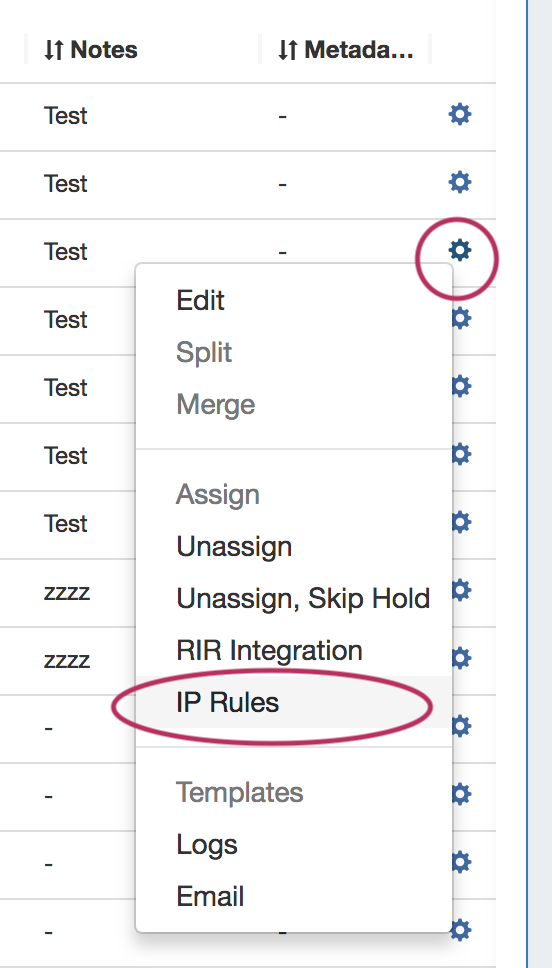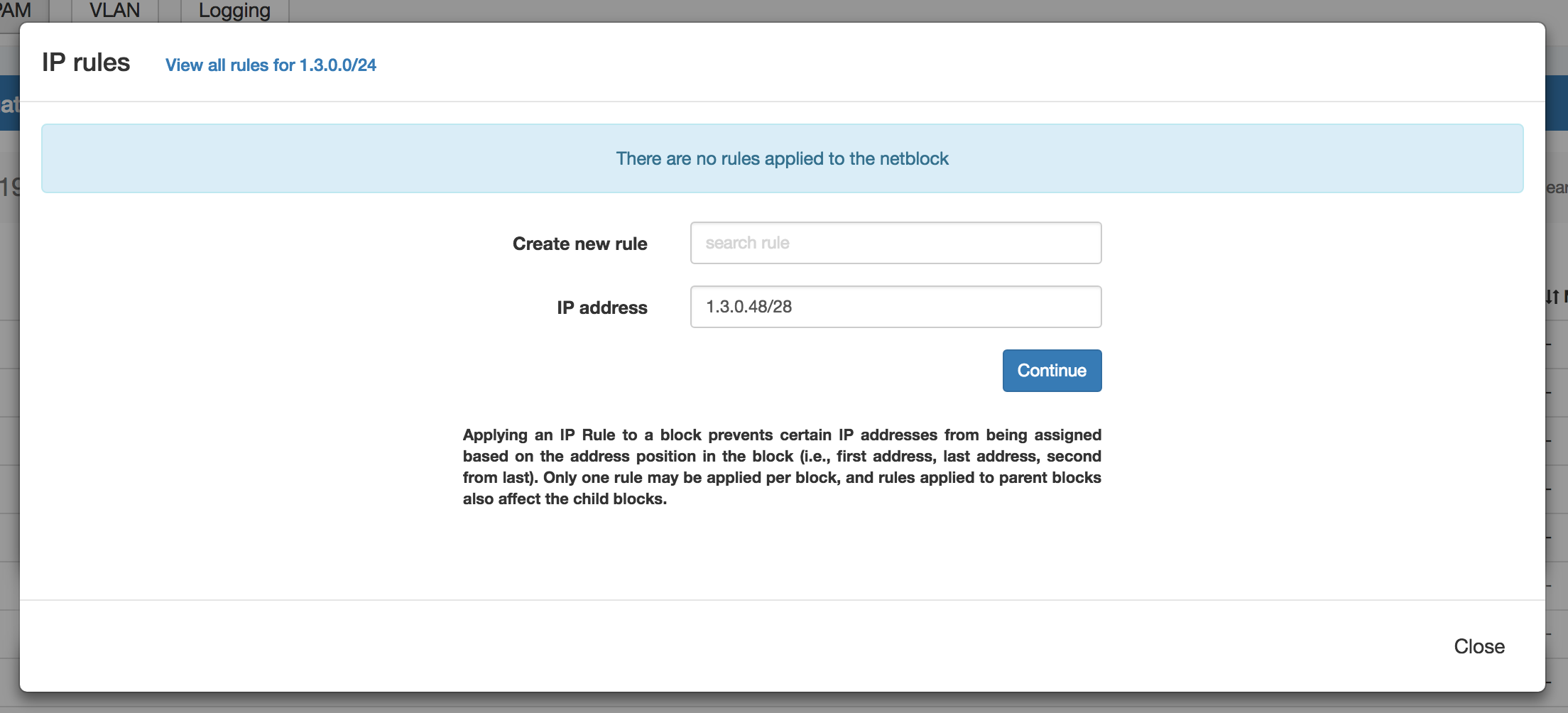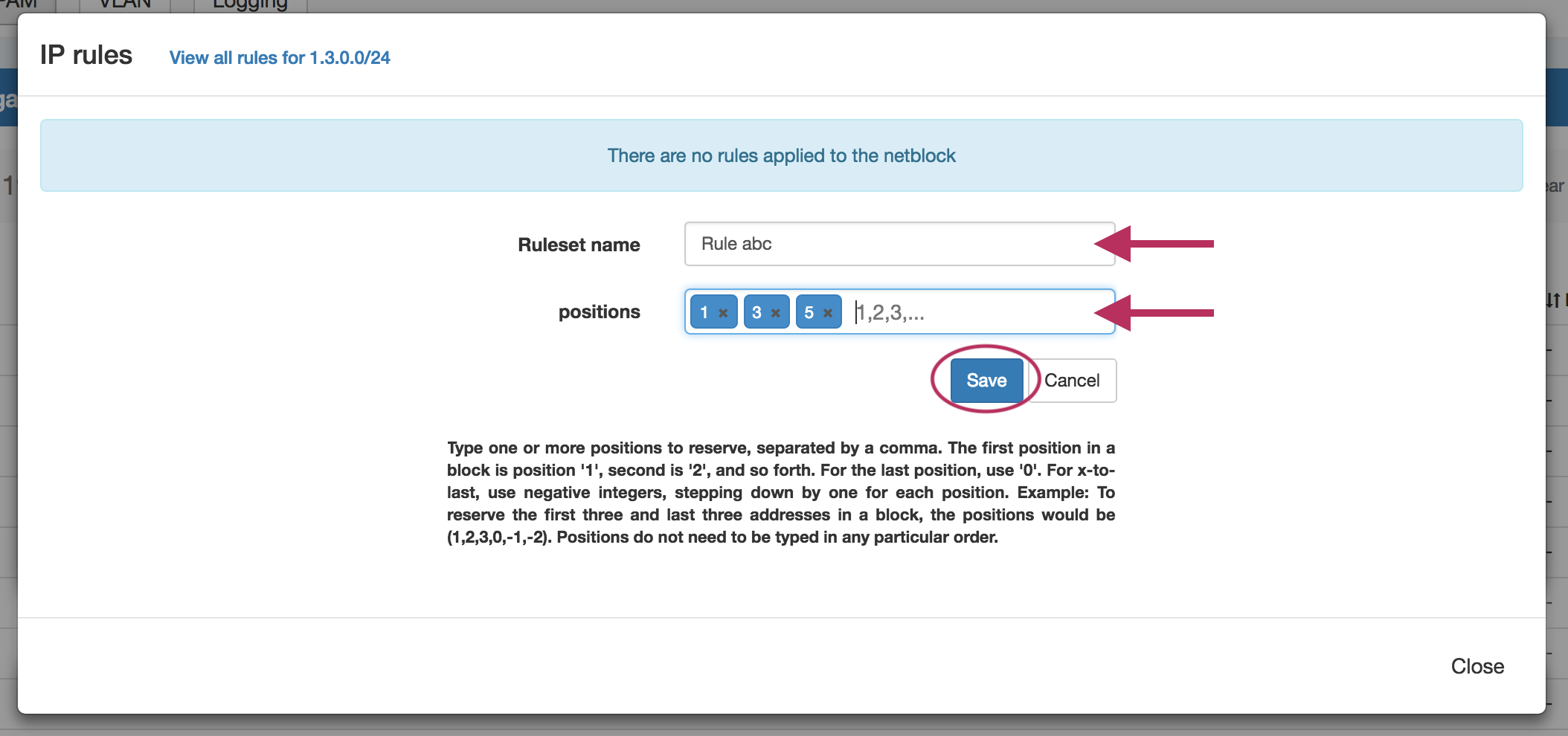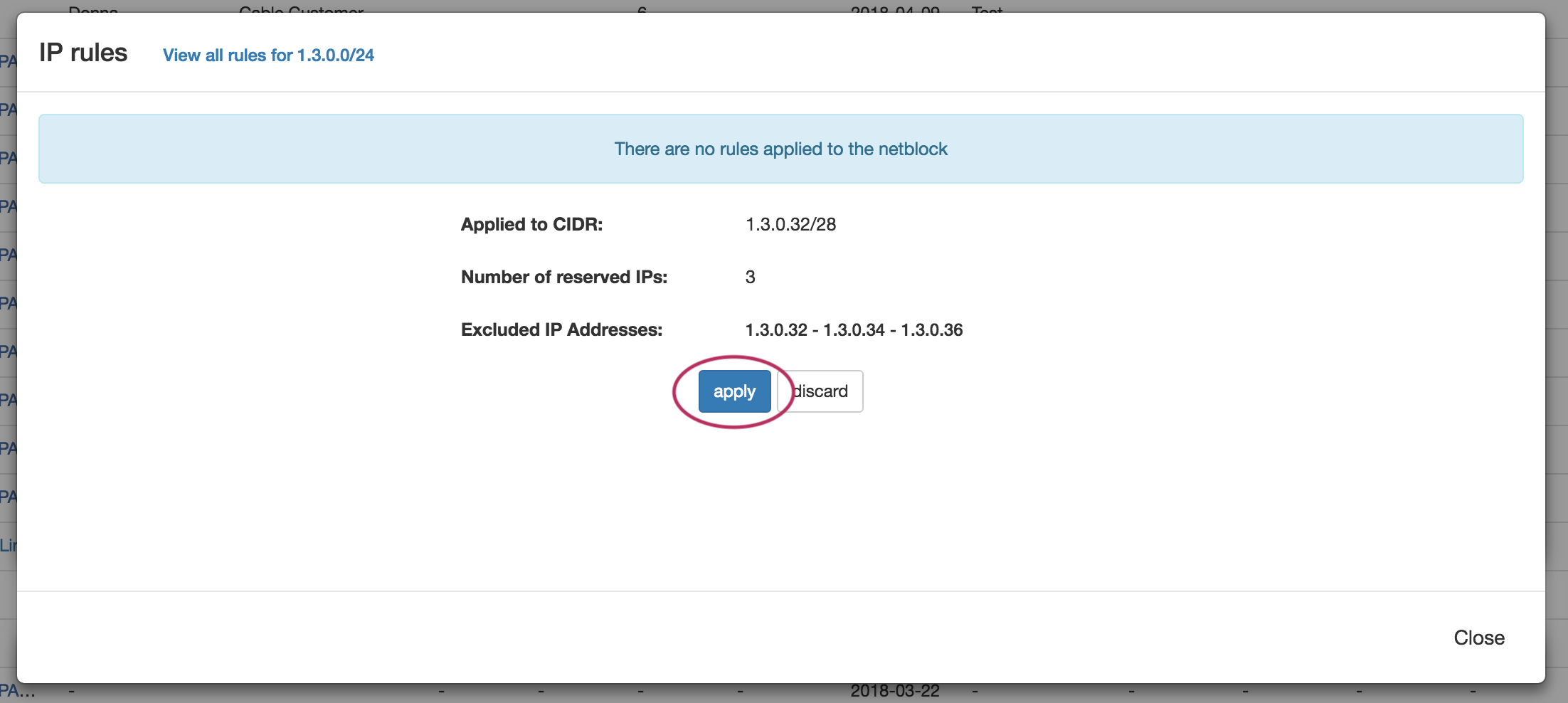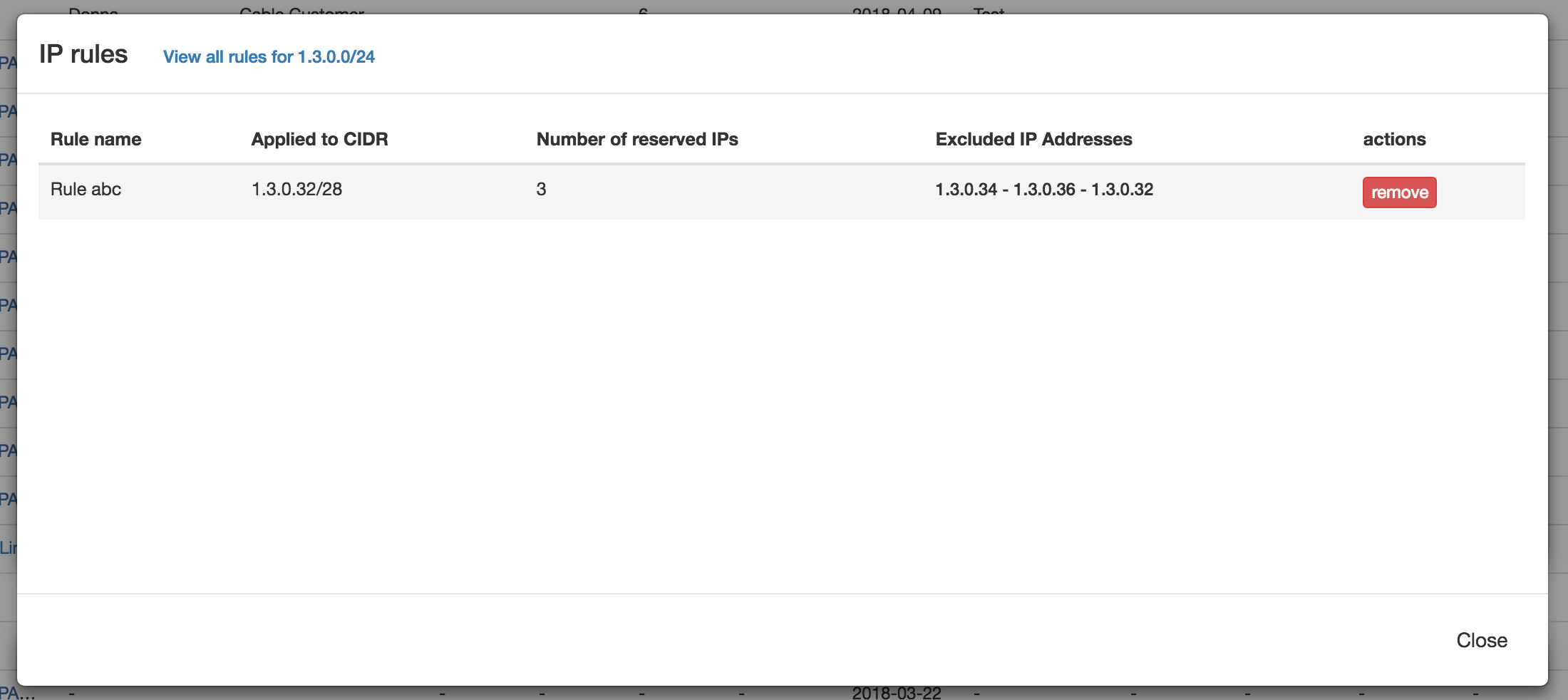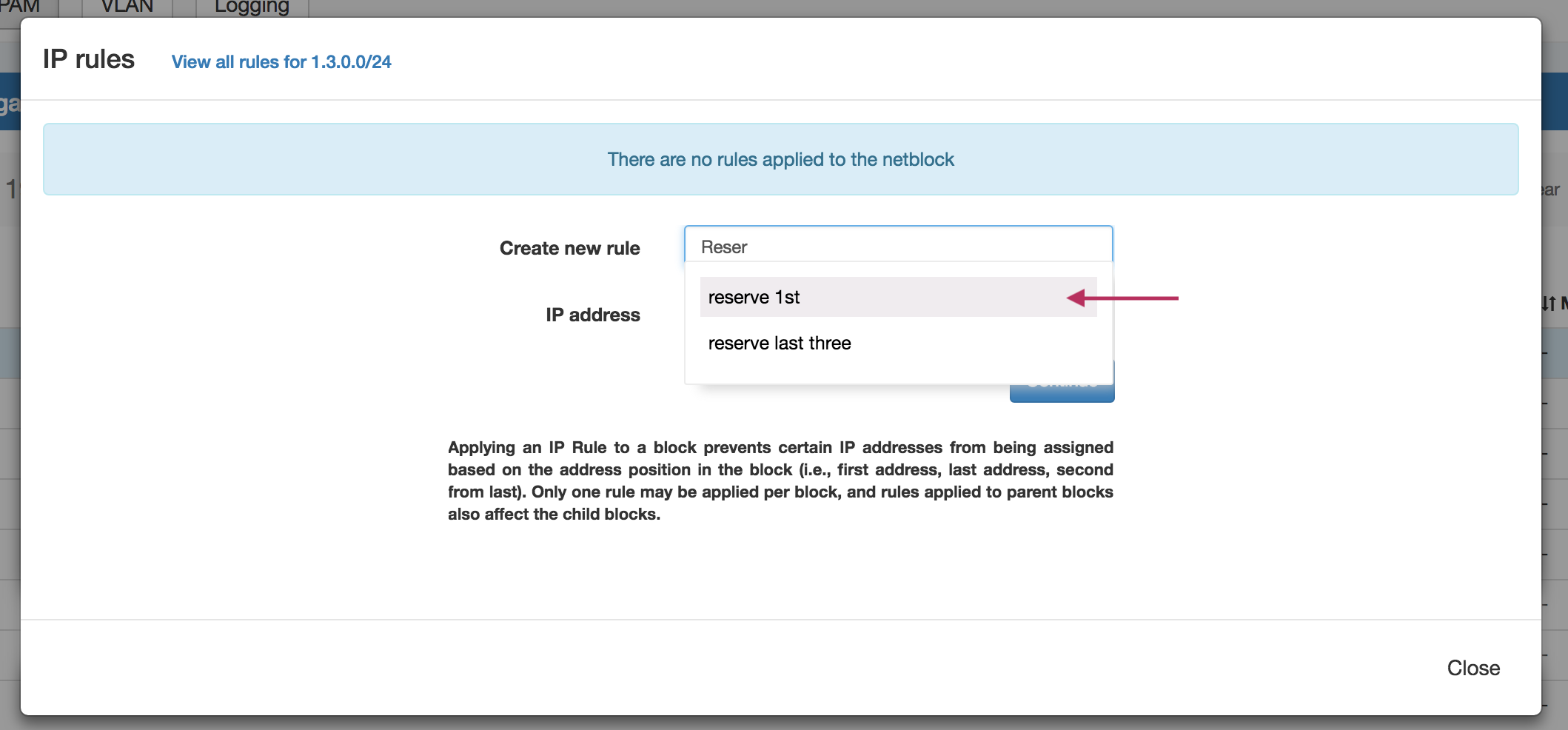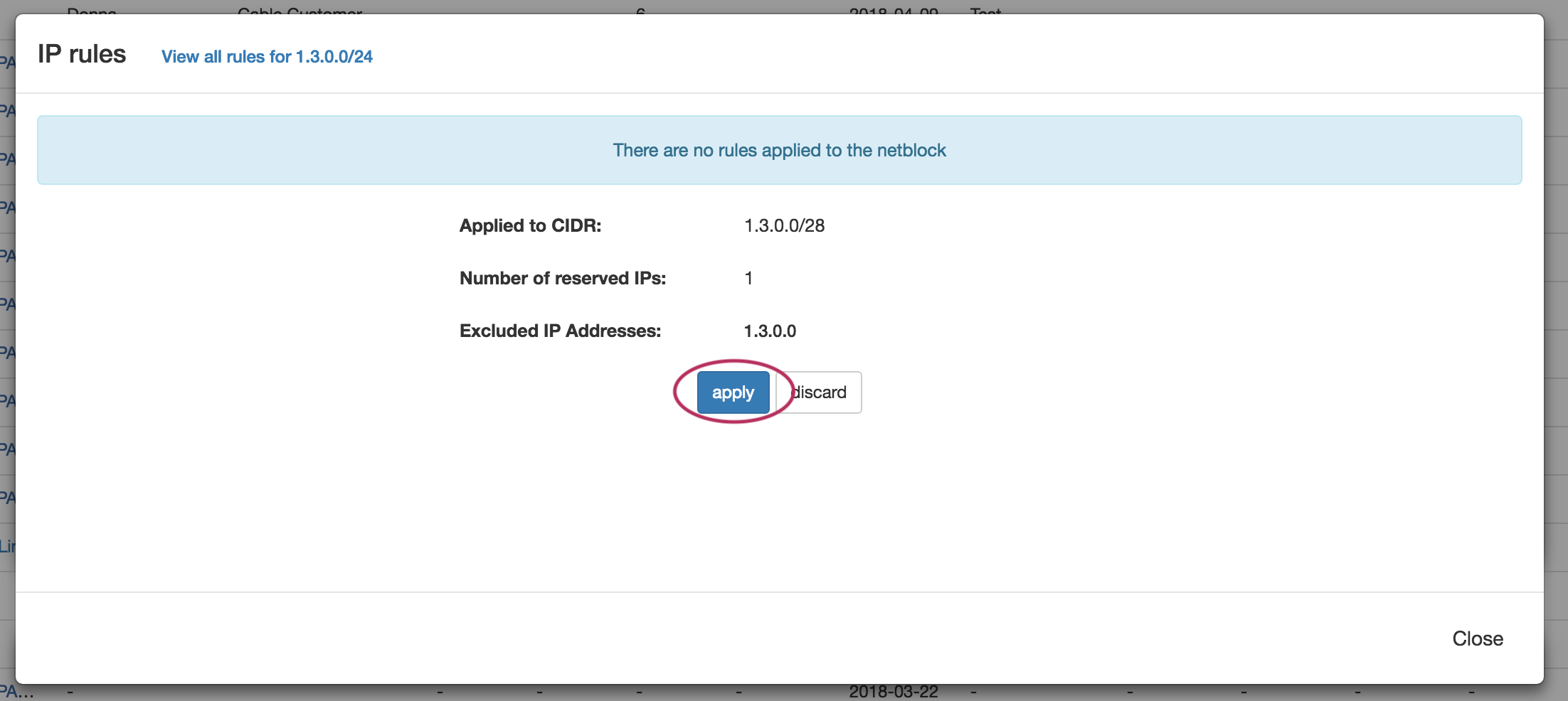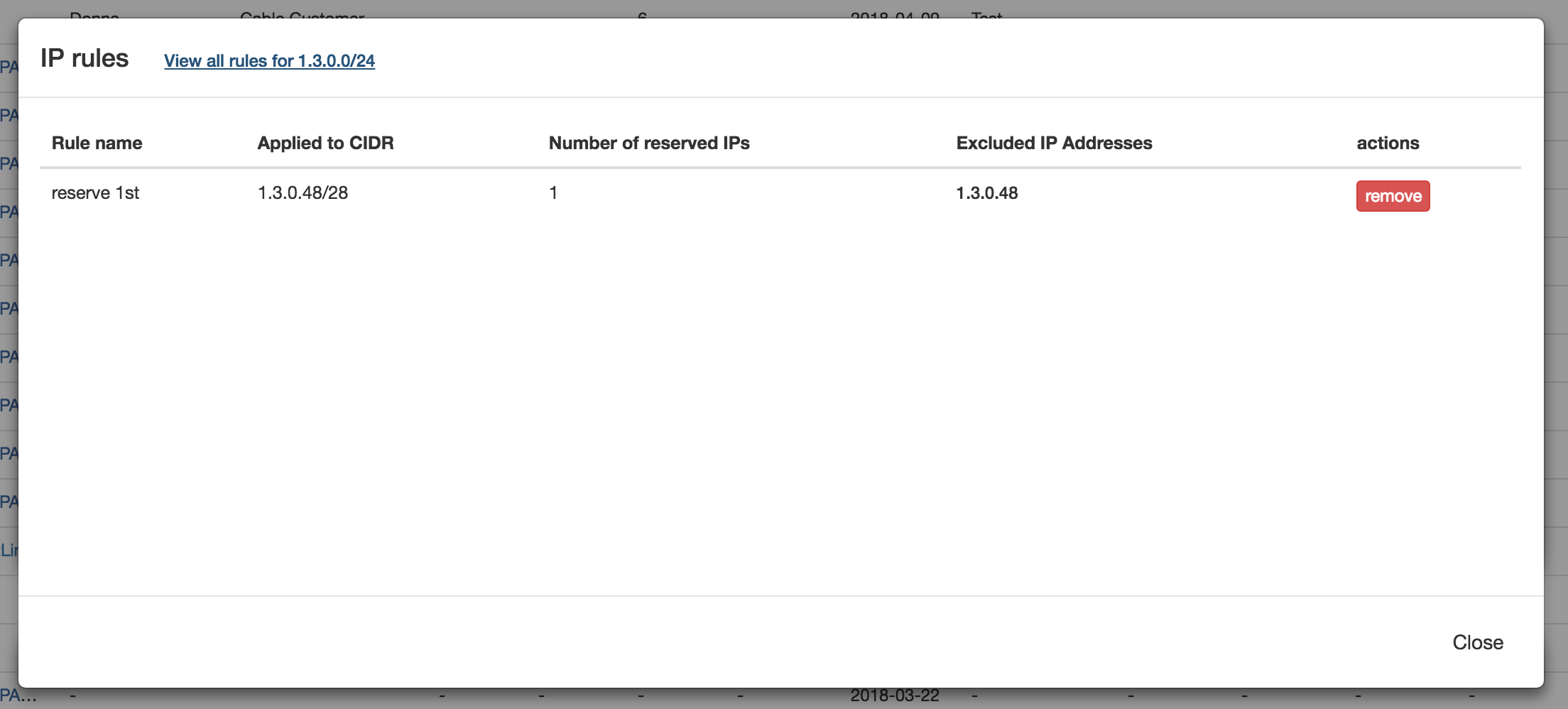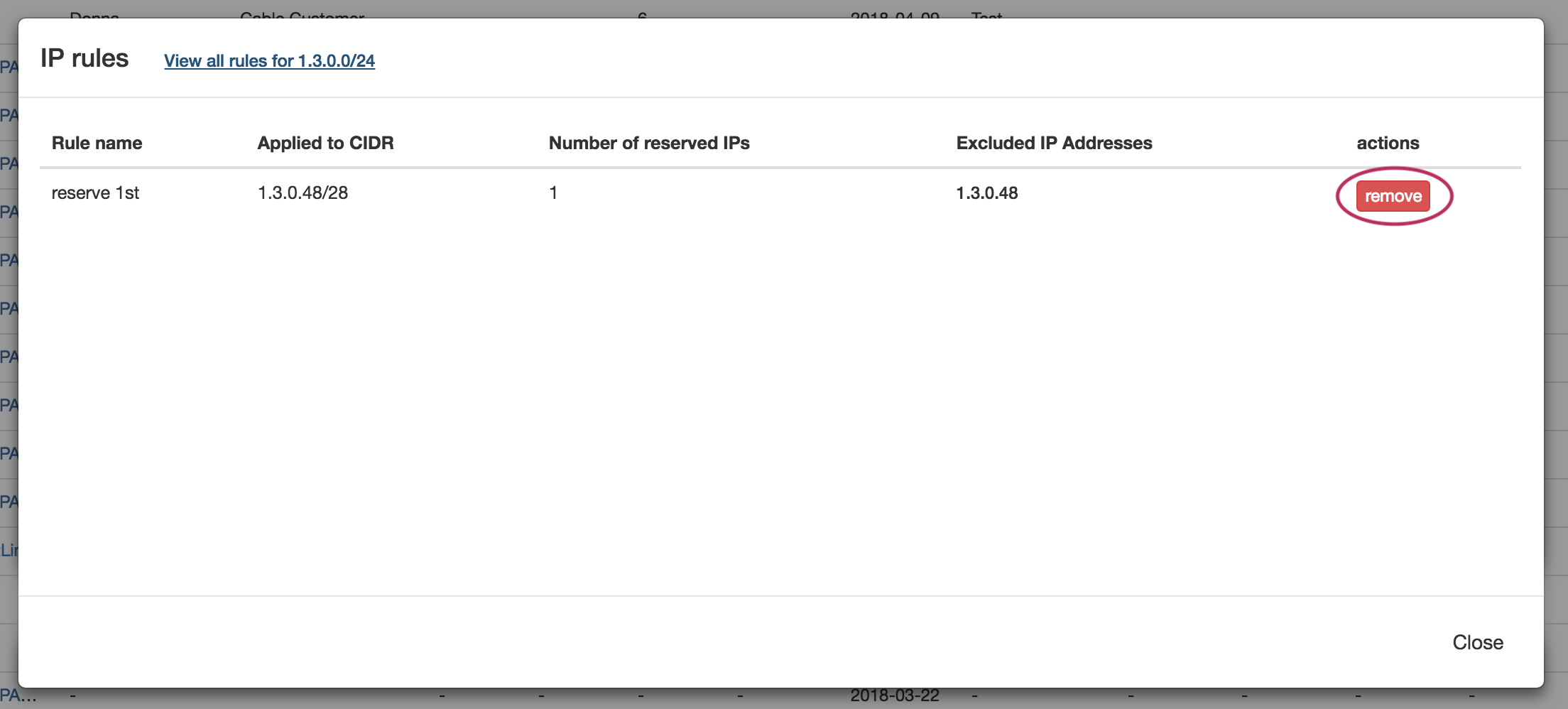Working with IP Rules
IP Rules
IP Rules allow users to exclude IP addresses from being assigned (via Smart Assign or Direct Assign) based on the address position in the block (i.e., first address, last address, nth from last).
IP Rules can be accessed from IPAM Manage or the IPAM Gadget, in the block's Action Menu (wrench icon). IPAM users may view rules applied to a block, apply an existing rule to a block, or create a new rule for a block. Only one rule may be applied per block, and rules applied to a parent block affect the child blocks below it in the tree.
Admin users may view all existing IPAM Rules, the blocks affected by each rule, and delete rules through the IPAM Admin - IP Rules page.
Creating a new rule
From the IPAM Manage screen or IPAM Gadget, click on the Action Menu (wrench icon) for the block you wish to apply a rule. Select "IP Rules".
The IP Rules screen will pop up. From here, you can view existing rules applied to the block (or the parent block), search for and apply an existing rule, or create a new IP Rule.
To create a new rule, leave the "Search Rule" input empty, and hit the "Continue" button.
The Manage Ruleset screen will appear, prompting you to enter a Ruleset name, and select positions to reserve.
Type in the desired name for the new rule, and one or multiple positions (denoted by integers separated by commas) into the box below the name.
When complete, click the "Save" button, or hit "Cancel" to exit without saving. The Rule preview screen will appear.
IP Rule Positions
Reserved addresses are set by their position in the block. Positions start at '1', for the first address in a block, and step up by one for each subsequent IP address. The last position in a block is '0', representing the last address, and steps down a negative integer for each position from last - so the last three addresses in a block would be represented by (0, -1, -2). When reserving multiple positions, the typed order of the positions does not matter.
Position examples:
(1) - Reserves the first IP
(0) - Reserves the last IP
(1,2,3) - Reserves the first three IPs
(0, -1, -2) - Reserves the last three IPs.
(1,2,3,0,-1,-2) - Reserves the first three and last three IPs
Review the list of excluded IP addresses affected by the rule, then click "Apply" to finalize the selection.
If desired, you can exit out of applying the rule by clicking "Discard", and closing the screen.
Once changes are applied, the rule will show the name, affected CIDR(s), affected IPs, and an option to remove the rule.
Apply an existing rule
From the IPAM Manage screen or IPAM Gadget, click on the Action Menu (wrench icon) for the block you wish to apply a rule. Select "IP Rules".
The IP Rules screen will pop up. From here, you can search for existing rules by typing a few letters of the Rule name in the search box, then selecting the desired rule.
Once selected, hit the "Continue" Button.
Review the list of excluded IP addresses affected by the rule, then click "Apply" to finalize the selection.
If desired, you can exit out of applying the rule by clicking "Discard", and closing the screen.
Once changes are applied, the rule will show the name, affected CIDR, affected IPs, and present with an option to remove the rule.
Remove a rule from a block
From the IPAM Manage screen or IPAM Gadget, click on the Action Menu (wrench icon) for the desired block. Select "IP Rules".
The details for the existing rule applied to the block will be shown. To remove the rule from the block, click the "Remove" button and confirm.
The rule will still be able to be re-applied and usable by other blocks, simply no longer applied to the current block.
Additional Information
For additional information on working with IP Blocks and IP Rules, including Admin-level tasks, see the following areas:
